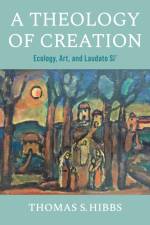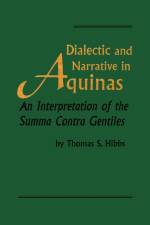av Thomas S. Hibbs
537
This book provides the first sustained philosophical treatment of Pope Francis's Laudato Si' and articulates a theology of creation to recover our place within the cosmos.In the encyclical Laudato Si', Pope Francis discerns beneath the imminent threat of ecological catastrophe an existential affliction of the human person, who is lost in the cosmos, increasingly alienated from self, others, nature, and God. Pope Francis suggests that one must reimagine humanity's place in the created cosmos. In this ambitious and distinctive contribution to theological aesthetics, Thomas Hibbs provides the basis for just such a recovery, working from Laudato Si' to develop a philosophical and theological diagnosis of our ecological dislocation, a narrative account of the sources of the crisis, and a vision of the way forward.Through a critical engagement with the artistic theory of Jacques Maritain, Hibbs shows how certain strains of modern art both capture our alienation and anticipate visions of recovered harmony among persons, nature, and God. In the second half of the book, in an attempt to fulfill Pope Francis's plea for an "aesthetic education" and to apply and test Maritain's theory, Hibbs examines the work of poets and painters. He analyzes the work of poets Robinson Jeffers and William Everson, and considers painters Georges Roualt, a friend to Maritain, and Makoto Fujimura, whose notion of "culture care" overlaps in suggestive ways with Francis's notion of integral ecology.Throughout this tour de force, Hibbs calls for a commitment to an "ecological poetics," a project that responds to the crisis of our times by taking poets and painters as seriously as philosophers and theologians.


